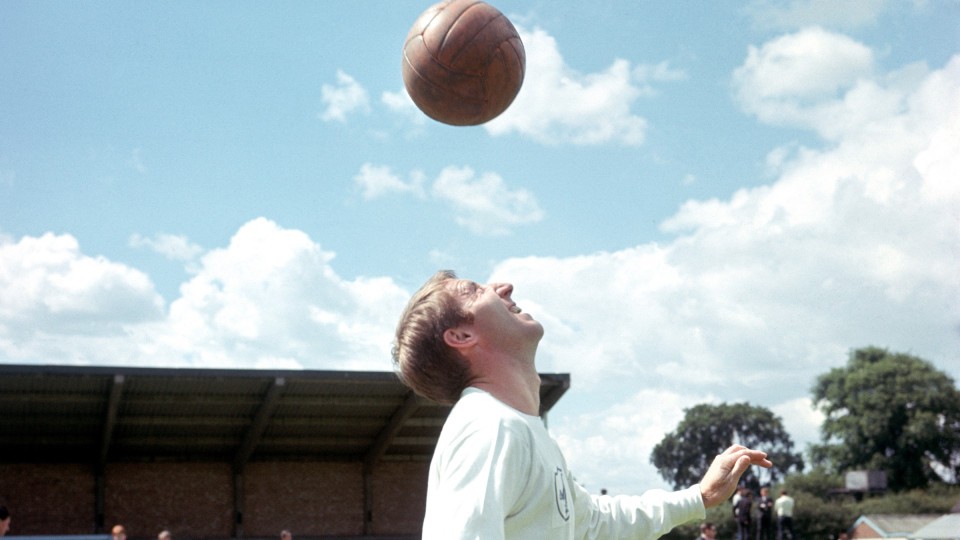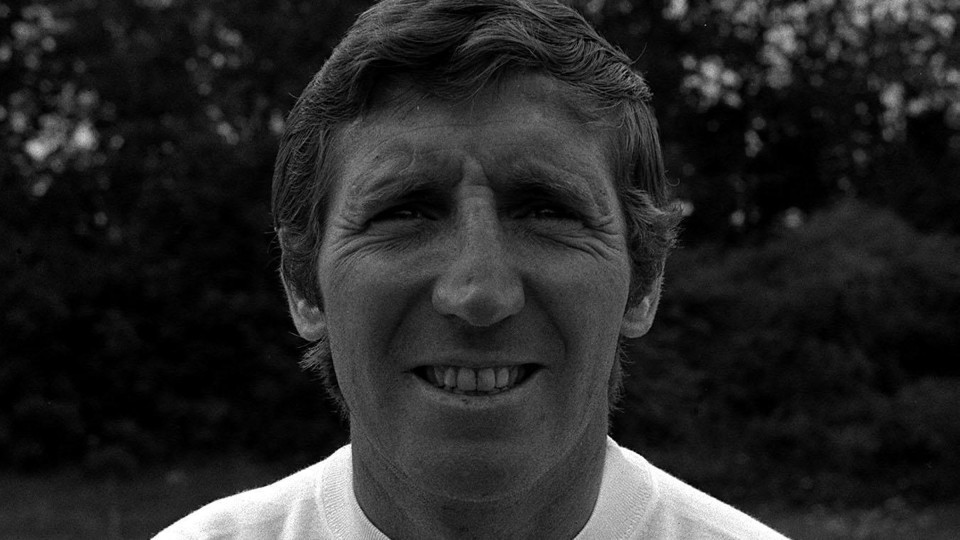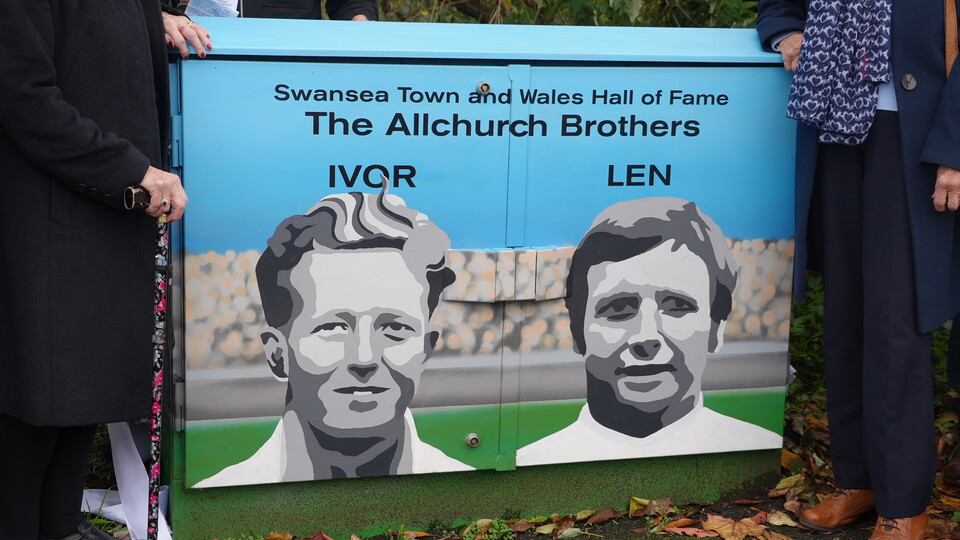Have you heard the one about the time the sheep were drafted in to mow the Vetch Field pitch?!
Cliff Jones was one of the greatest left-sided players to grace a pitch. He was destined to play football and was always going to start his career at his beloved Swansea Town. In the first of a two part interview, the former player talks about the early years, standing alongside giants and the day the sheep were drafted in to keep the Vetch Field grass down!
Ask Cliff Jones what it was like to play for Swansea and you don't need to see his face to know he is smiling - you can hear it in his voice.
Born in 1935, Jones was of football stock and he followed in his father's footsteps and began his career with his hometown club, where he made just short of 200 appearances in all competitions.
A star for Swansea Schoolboys, he made his first-team debut as a teenager against Bury in 1952 and spent six years with the Swans before Tottenham Hotspur came calling.
He and his wife, Joan, brought their family up in London and have stayed there, but their hearts remain in south west Wales to this day.
"There were six great season with the Swans at the dear old Vetch Field. They really were great days. It always seemed as though there were 25,000 plus people cheering us on. They were special times.
"When I look back on my football career I have very fond memories of that time."
Jones got to play alongside his brother Bryn and the man he calls "the golden boy of Welsh football", Ivor Allchurch.
"It was very special to play alongside Ivor because he was a very special player. And of course we played together for Wales as well, they were happy times.
"My father, Ivor, played for Swansea and it was always my ambition, I was always going to be a professional footballer."

Life for a professional footballer in the '50s was a far cry from today and players had to work as well as play.
Jones recalls a time when he was helping the ground staff and the suggestion was made to use an unconventional means of keeping the grass short.
"We'd get the grass seed down and get it all ready for the season, but as the grass was growing, nicely, it was suggested to start cutting it and one of the directors, Mr Weaver, he was the local farmer, he said: "Don't cut the grass. I'll get some of my sheep to come down."
"And he brought a pack of sheep down on the grass to keep it short. That was alright, but then of course the pitch was covered with lambs' ****!
"It was all over the place and we were clearing that rather than cutting the grass!
"It could only happen at Swansea! It was one way of keeping the sheep fed and cutting the grass, which didn't really work out to be honest!
"I don't think that would happen today."

And it wasn't just the pitch up-keep that was different. Wages were £12 a week and Saturday night entertainment was dancing on Swansea pier.
"We got £4 for a win and £2 for a draw and then it went up to £20 a week and that was the maximum wage, though the maximum wage was abolished in 1961/2.
"A players' union was formed and we decided if the maximum wage wasn't abolished, we'd go on strike and it would have happened, so it was abolished. There were big changes then.
"Players today earn more in one week than I earned in my career, I think. I just can't believe but good luck to the boys, long may it continue for them."
By then, the Jones' had moved and had settled into life at Spurs, but the affection for their local club and the area where they had both grown up never diminished.
"My wife is a Swansea girl and we still love the place, even after all these years. When I left, the first result I looked out for was always Swansea.
"We'd always come back down to our roots. We still make it back now. We've settled in London, it's our home now, but our roots are still in Swansea."
Ex Swans who want to be involved with Swansea City Former Players’ Association are asked to fill in the registration form HERE.
The club is also keen to hear from relatives and friends of former players who are not online but who might still like to join the FPA.
Anyone in this category is asked to call the FPA secretary, Catherine Thomas, on 01792 616420 or email catherinethomas@swanseacity.com
Alternatively, the three former players on the committee, chair Lee Trundle, deputy chair Leon Britton and lifelong president Alan Curtis, are also happy to talk to players or their families directly.
The FPA is free to join and is open to men and women who have played for the club.
Its primary aims are to promote friendship, support and charitable work, including fundraising, by bringing together players from different generations and different eras.
It will also offer an opportunity to add to the archives of Swansea City Football Club by giving former players a chance to share their stories of life as a Swan.


